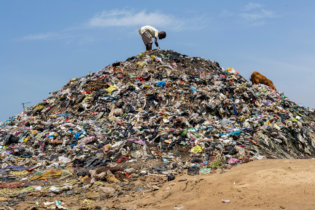Government has officially declared the drought and water crisis plaguing the country a national state of disaster.
Cooperative Governance and Traditional Affairs (COGTA) Minister Zweli Mkhize made the announcement on behalf of the Inter-Ministerial Task Team on Drought and Water Scarcity during a media briefing in Cape Town on Tuesday. The reclassification of the drought as a national disaster was done by the Head of the National Disaster Management Centre, under Government Notice 107/2017, published in Government Gazette 41439 on 13 February 2018. The reclassification of the drought as a national disaster will allow the national executive, to act in close cooperation with the other spheres of government to deal with the disaster and its consequences. The declaration covers a period of three months.Minister Mkhize said that three provinces including Western Cape, some parts of the Northern Cape and Eastern Cape are extremely affected, and are not yet showing comforting signs of improvement.
“At this stage there is no indication to support rainfall that is more than 25 millimetres for the Western and Northern Cape Provinces, except perhaps a low likelihood along the south coastal areas,” Minister Mkhize said.Measures to address underlying factors
Minister Mkhize said government has taken measures to address underlying factors, including among others, weak intergovernmental relations arrangements in development planning and implementation, ageing infrastructure, lack of operations and maintenance of infrastructure, and capacity constraints particularly with regard to technical expertise.Heightening drought interventions
Actions to take place to ensure heightened drought interventions across the country include:- The National Joint Drought Coordination Committee (NJDCC) will meet monthly and continue coordinating integrated multi-sectoral intervention measures to address the drought situation in the affected provinces.
- All sectors will mobilise their resources and implement relevant sectoral programmes to deal with drought in an integrated and coordinated manner to avoid duplication of efforts.
- The development of an integrated water conservation model will be pursued through multi-sectoral engagements under the auspices of the Inter-Ministerial Task Team on Drought and Water Scarcity.
- The country will work hard to enhance the weather forecasting capacity to ensure impact-based early warning services to enhance public knowledge and safety from weather related incidents. This will be done under the leadership of the South African Weather Services.
- A team of research experts will be constituted to carry out on-going research and provide evidence-based interventions taking into account the prevailing and emerging disaster risk scenarios.
- National and provincial government will continue to work with municipalities to respond effectively to the water crisis.
- COGTA will strengthen its Back to Basics Programme to support municipalities to improve water management. This includes intensifying maintenance programmes to reduce water losses as well as the refurbishment and replacement of infrastructure.
- The sectors will continue activating their climate change adaptation strategies and plans to support municipalities within the provinces.
- Government will continue with the implementation of the “War on Leaks” programme where communities report all the water leaks. Municipalities must act by repairing the leaking pipes.
- The IMTT will continue to regularly consider reports received from the NJDCC on measures being put in place to improve coordination and deployment of resources for response and recovery from the drought disaster, and to provide political guidance.







